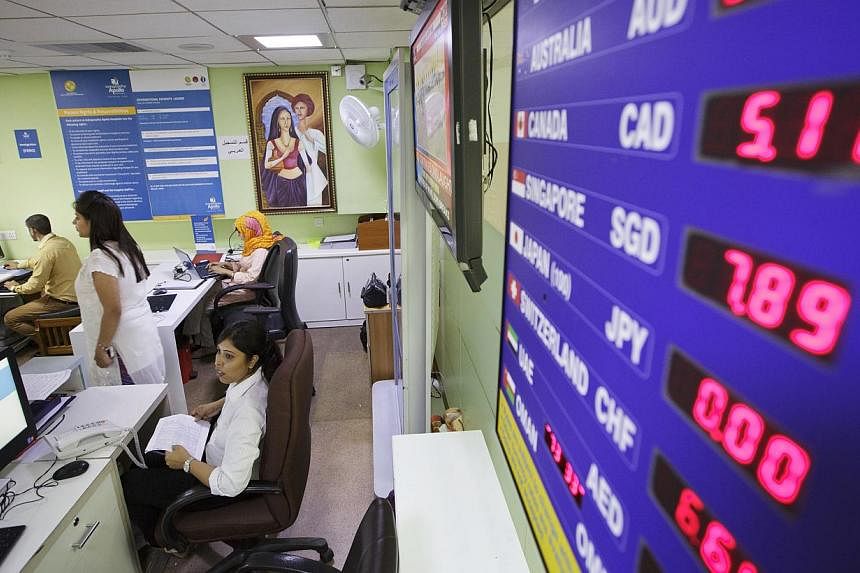Many people do not realise it but India faces a unique business opportunity as a potential destination for affluent pensioners and retirees from across the globe.
In fact, India should start considering how to exploit its advantages in this area.
Old-age living in most developed countries is expensive, and moreover, inconvenient.
The social structure of extreme nuclear living in many developed cities means many pensioners go through the cycle of daily living by themselves.
Some developed countries have retirement homes and a social system that supports pensioners. But daily living, with housing and care needs, remains expensive and inconvenient for many.
Visit any department store in Britain or a European city on a typical weekend and you will see slightly forlorn elderly people shambling around, checking prices of goods that have been marked up due to inflated value-added taxes.
In contrast, India is a comparatively cheaper place to live in. This is despite the fact that the cost of living in India has also grown leaps and bounds in recent years from historical levels.
The recent movement in the Indian rupee also means that every US dollar can fetch more in rupee terms now. The website numbeo.com puts London rental rates at eight times those in Delhi and consumer prices at nearly three times more.
With interest rates in developed countries at historic lows, the yield earned on their risk-free financial assets is minimal.
It makes financial sense to spend in a low-cost country, so that the earnings-expense equation is favourable.
Affluent retirees might be able to live in India from only the interest income they earn, without even touching their capital or reallocating it to riskier financial assets. Real estate townships have now come up in Indian cities and feature every convenience and facility one can imagine. One example is the Anandam retirement community - an award-winning development in the state of Tamil Nadu. Living in such complexes is relatively secure, since professional security agencies are appointed. Daily maintenance is also taken care of.
India also aspires to become a leading manufacturer of generic pharmaceuticals, as many drugs are nearing the end of their patent periods in Western countries.
This means India is competitively placed to cater to pharmaceutical demands, as one assumes generic drugs would lower the cost of medication significantly. The high cost of medicine is a challenge for the elderly across the world, and manufacturing generic drugs locally might help bring down this cost for global retirees.
India houses state-of-the-art speciality hospitals that offer the whole range of medical care. Indian doctors have made their mark globally. India has long been a destination for patients from Asian and African countries. The focus is now on bringing in patients from Europe, the United States and Japan as well. It is just a small step from medical tourism, to promoting India as a retirement destination.
India also has ample manpower to cater to caregiving for retirees. In Indian families, family members themselves act as caregivers to elderly relatives, as most professional caregiver agencies are too expensive for Indians.
However, foreign retirees who have typically made their money at comparatively higher income levels in the US, Europe, Japan or Singapore will find Indian domestic services affordably priced. This also creates employment opportunities for the country's vast semi-skilled population.
Global retirees will also feel at home linguistically in India, where English is the main business language. Local media, road signs, information materials are in English, apart from vernacular languages. Even low-skilled workers can converse in broken English.
Once in India, retirees will find ample things to do and many tourism destinations to keep themselves occupied.
But India too must do its bit to lure retirees. It can use visa policies to extend preferential treatment for long-term visitors such as retirees with financial security. This will create a pool of people who can boost tourism, medical care, real estate values and employment levels in the country.
Competing countries like Malaysia and Thailand have special visa plans to enable long-term stay for elderly retirees from Japan and elsewhere.
But why retire in India when safety even for tourists is a concern, you may ask. The good news is, large-scale advocacy by ordinary Indians on this issue has shaken up the government to address this. Safety and security are risks every Indian faces.
At least based on rhetoric alone, the new government has demonstrated its commitment to address safety, especially for women. But of course it has to be followed through with action. The truth of the matter, however, is that like any smart traveller, one needs to know which places are safer and which places to avoid. Safety and crime data will help retirees find such information.
Tourism websites too need to provide information on infrastructure, processes and facilities global retirees can use to make their decisions, and ensure they have a smooth transition.
The Indian authorities could team up with professional agencies that cater to people looking to live abroad.
Certainly, a lot more infrastructure development needs to take place. But I would argue that there is a significant business case to be made for India to pursue this opportunity to turn itself into an attractive retirement destination for global retirees.
The author is a finance professional currently living in India.

